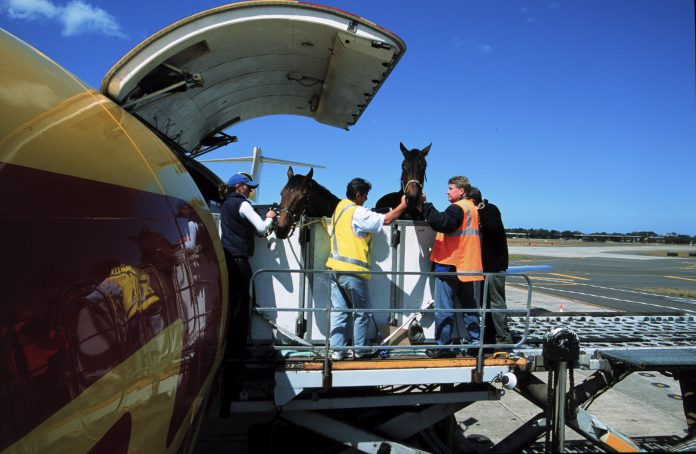A new global certification program by the International Air Transport Association (IATA) aims at ensuring the safety and welfare of the millions of live animals carried by air each year.
The standards have been developed by the Center of Excellence of Independent Validators for Live Animals Logistics (CEIV Live Animals).
Air Canada Cargo and the City of London’s Heathrow Animal Reception Centre helped pilot the program. Last year, about 16,000 dogs and cats 400 horses, 200,000 reptiles, 2,000 birds and 28 million fish travelled through the Heathrow centre.
CASA does not collect statistics on the number of animals carried by air in Australia, though anecdotally, the numbers are increasing. Individual airlines are responsible for their own policies on the carriage of animals, though they are subject to airworthiness and safe loading requirements, as well as animal welfare laws.
According to IATA, the program aims to increase the level of competency, operations, quality management and professionalism in the handling and transportation of live animals, ranging from fish to endangered wildlife, while reinforcing training and compliance across the supply chain.
Independent validators conduct training and onsite audits to ensure the animals’ safety and welfare.
IATA’s senior vice president of airport, passenger, cargo and Security, Nick Careen, said, ‘For those shipping live animals the CEIV Live Animals program will provide a reliable quality benchmark. Just as CEIV Pharma helped provide quality standards for temperature sensitive healthcare shipments, the new program extends that expertise to the important field of transporting and handling of animals.’
The program also meets the requirements of the Convention on International Trade in Endangered Species of Wild Fauna and Flora (CITES) including the CITES Guidelines for the Non-Air Transport of Live Wild Animals and Plants. CITES is the legally-binding agreement with 183 parties (182 states and the EU), regulating international trade in more than 36,000 species of animals and plants.
CITES has welcomed the program. Its Secretary General, John Scanlon, said, ‘the CEIV Live Animals program helps to ensure that any legitimately traded wildlife adheres to the IATA standards and CITES requirements … it is through industry working cooperatively together that can we can most effectively implement these agreed standards and requirements, and also identify and tackle illegal trade in wildlife.’






Any animal that can afford to fly would be travelling first class anyhow